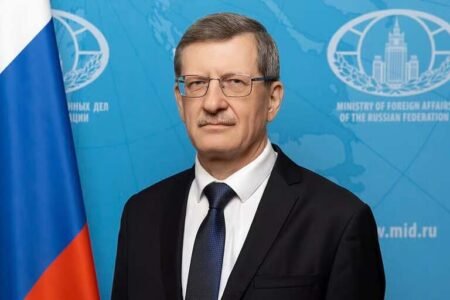The Financial Action Task Force (FATF) has formally removed Nigeria from its list of jurisdictions under enhanced scrutiny, popularly known as the grey list.
The decision was made at the FATF October 2025 Plenary in Paris, France, after the country successfully implemented a 19-point action plan to strengthen its Anti-Money Laundering and Countering the Financing of Terrorism (AML/CFT) framework.
The FATF discovered systemic flaws in Nigeria’s AML/CFT systems and placed the country on the gray list in February 2023.
Over the last two years, the Federal Government has collaborated with the FATF and the Inter-Governmental Action Group Against Money Laundering in West Africa to close identified gaps through legislative reforms, institutional improvements, and improved inter-agency cooperation.
The FATF cites several key reforms, including the enactment and enforcement of the Money Laundering (Prevention and Prohibition) Act, 2022, and the Terrorism (Prevention and Prohibition) Act, 2022; the implementation of the Beneficial Ownership Register; and improved supervision of designated non-financial businesses and professions.
In a statement issued on Friday, the Director/CEO of the Nigerian Financial Intelligence Unit, Hafsat Bakari, stated that Nigeria has improved the capacity of its intelligence and law enforcement agencies to detect, investigate, and prosecute financial crimes, as well as deepen international cooperation and intelligence sharing.
She said, “The NFIU is pleased to announce that the FATF, at its October 2025 Plenary in Paris, France, has officially removed Nigeria from the list of jurisdictions under increased monitoring, commonly known as the grey list.
“This milestone marks a historic moment in Nigeria’s fight against serious financial crimes. The delisting of Nigeria underscores the country’s commitment to global standards in combating money laundering, terrorist financing, and proliferation financing.
“Nigeria has demonstrated sustained commitment to financial transparency and integrity. Key milestones include the enactment and enforcement of the Money Laundering (Prevention and Prohibition) Act, 2022, and the Terrorism (Prevention and Prohibition) Act, 2022; the operationalisation of the Beneficial Ownership Register, improving corporate transparency and accountability; implementation of stronger supervisory and preventive measures by public and private sector authorities to prevent abuse of Nigeria’s financial system; increased international cooperation and cross-border intelligence exchange with regional and global partners; and improved supervision of Designated Non-Financial Businesses and Professions.”
She stated that a high-level Nigerian delegation, comprising the Attorney-General of the Federation and Minister of Justice, the Ministers of Finance and Interior, and the Director of the NFIU, represented the country in the plenary.
Bakari, who spearheaded the reform implementation, called the delisting “a true test of Nigeria’s resilience, coordination, and unwavering commitment to reform.”
She praised President Bola Tinubu’s leadership and recognized major government institutions, the National Assembly, the judiciary, and the private sector for their contributions to attaining the milestone.
Bakari urged all parties to maintain the reform momentum to ensure Nigeria’s compliance with global financial integrity norms.
According to her, Burkina Faso, Mozambique, and South Africa were also removed from the grey list during the same plenary.








